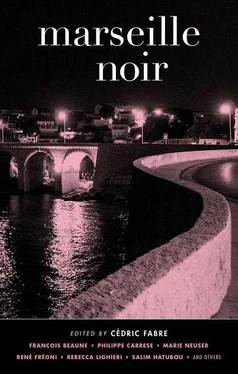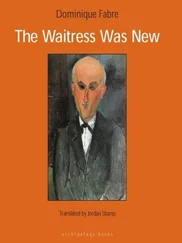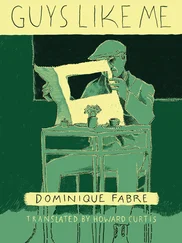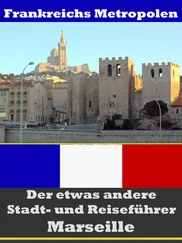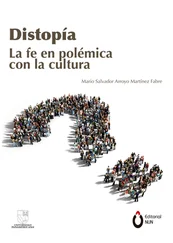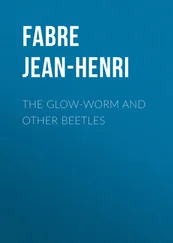Cédric Fabre - Marseille Noir
Здесь есть возможность читать онлайн «Cédric Fabre - Marseille Noir» весь текст электронной книги совершенно бесплатно (целиком полную версию без сокращений). В некоторых случаях можно слушать аудио, скачать через торрент в формате fb2 и присутствует краткое содержание. Год выпуска: 2015, Издательство: akashic books, Жанр: Крутой детектив, на английском языке. Описание произведения, (предисловие) а так же отзывы посетителей доступны на портале библиотеки ЛибКат.
- Название:Marseille Noir
- Автор:
- Издательство:akashic books
- Жанр:
- Год:2015
- ISBN:нет данных
- Рейтинг книги:5 / 5. Голосов: 1
-
Избранное:Добавить в избранное
- Отзывы:
-
Ваша оценка:
- 100
- 1
- 2
- 3
- 4
- 5
Marseille Noir: краткое содержание, описание и аннотация
Предлагаем к чтению аннотацию, описание, краткое содержание или предисловие (зависит от того, что написал сам автор книги «Marseille Noir»). Если вы не нашли необходимую информацию о книге — напишите в комментариях, мы постараемся отыскать её.
Marseille Noir — читать онлайн бесплатно полную книгу (весь текст) целиком
Ниже представлен текст книги, разбитый по страницам. Система сохранения места последней прочитанной страницы, позволяет с удобством читать онлайн бесплатно книгу «Marseille Noir», без необходимости каждый раз заново искать на чём Вы остановились. Поставьте закладку, и сможете в любой момент перейти на страницу, на которой закончили чтение.
Интервал:
Закладка:
My cell rings. It’s my boss. I pick up.
“Yes, hello!”
“Samba, did you read this morning’s paper?”
“No! What’s up, Chief?”
“They killed Radhia!” he announces.
The cup of coffee falls from my hand and splashes on the sidewalk. Radhia! I rush into the living room and turn on the TV. I stand there paralyzed before the images looping on the screen: on an ordinary road, a car is riddled with bullets. On the ground lies a body covered with a white sheet. And a commentary: “The killers were extremely determined and didn’t give their victim a chance. She was at the wheel of this convertible. Twenty-nine holes were found, twenty-nine bullets fired from a submachine gun. It’s the first time a woman has been shot in these killings that continue to cast a shadow over Marseille.”
With my jaws clenched, I slam my fist into the wall and collapse in tears like a little kid. Out there on the asphalt, under the makeshift sheet, lies Radhia, the love of my childhood and adolescence. My Radhia!
With a pistol pointed at his forehead, his back against the wall, and his eyes bulging, the redhead is stammering: “I swear I don’t know anything! I haven’t seen your Radhia for years.”
All the customers in the café at the entrance to the Savine projects are holding their breath. Nobody moves. They all know me here and they know that whoever puts in his two cents might make some dentist rich.
“Listen up. You’re going to tell me, nice and easy, who’s connected to Radhia’s death or I’ll blow your head off.”
“Okay, okay, put down your piece and I’ll tell you everything I know. I’ve seen her hanging out with a Comorian guy a lot. He had a scar on his cheek and—”
I push him into the bathroom.
When I come out, I find the place empty. Everybody split. The redhead staggers out, covered with blood.
“Sorry for the disturbance,” I say to Jo, the master of the house.
“Christ, Samba, I’ll have to clean up everything now.”
“Clean up your customers, that’ll save you from having to mop up every time,” I tell him as I walk out.
He’s there with his nose almost glued to mine. We’re standing in his office at the Évêché. Police headquarters. Right behind the building is Le Panier, where my father, like many Comorians, set down his suitcase when he landed in France before the law allowed him to send for his family and before he went to live in the North End where the high-rises were emerging from the concrete.
“Unacceptable, Samba. Unacceptable. Terrorizing a whole café. You’re really off your rocker.”
“I already told you the circumstances, Chief. I explained the whole thing from A to Z.”
Chief holds his head and screams: “That’s all they’re talking about, Samba: a cop making mincemeat of a guy in some café. You know what? I’m going to tell you something, you asshole — what the hell business is it of yours, huh? When you asked me to give you the investigation into Radhia’s death, I said no. And what do you do? You circumvent the official investigation.”
“You put clock-watchers on the case, real jerkoffs, and you want me to stand there while Radhia’s murderers are walking around free? You’re screwing this up big time. And I’m being polite, Chief.”
“Shut up!” Chief holds out his hand and says: “Okay, hand them over. Your badge and your weapon. You’re suspended.”
I throw them in his face and split. Avenue Robert Schuman. Traffic is heavy. I turn right on boulevard des Dames. At the entrance to the highway, I see a girl crossing the street. She looks like Radhia. No, it’s not her. My Radhia is dead. The last time I saw her she was dancing in low-waisted jeans in the middle of my living room, eating strawberries. She’d come to tell me she was leaving and my tears wouldn’t change anything, as Serge Gainsbourg says so well. She was someone else now. Jesus. When people have changed so completely, is there a warehouse to store what they were, like bags in a checkroom?
Night is falling. I drive to Plan d’Aou. The Plan d’Aou of my childhood no longer exists. New low buildings have replaced the old high-rises and construction is still in progress. I’m going to see Fadhul, one of my father’s brothers. That is, one of his former coworkers he thought of as his brother. I’ve always called him uncle. I ring the doorbell. My uncle’s wife opens the door and gives me a big hug. She invites me to sit on the couch. Her husband comes in.
“Uncle, I’m looking for a Comorian who has a scar on his left cheek. Does that ring a bell?”
He thinks for a long time and scratches his chin before he answers: “Yes, of course. I saw him twice. His name is Said Mhiba. He was with Hamda Karibedja, who lives in building A, fourth floor, in the Félix Pyat housing project.”
I leave Plan d’Aou and head for Félix Pyat, which they call the Bellevue projects. When I find building A, the elevator’s not working. The mailboxes are smashed in and the walls covered with tags. The staircase smells of piss. I walk up to the fourth floor and knock on the door. A boy of around twelve opens it and says “Kwezi” to me, a Comorian word to express respect. I ask to see his father and he tells me to come in. I find a man sitting on the couch listening to the radio. I’m walking over to say hello when he tells me to wait. So I can’t help pricking up my ears and listening to the radio too. It’s RFI, Radio France International:
“In the Comoros, President Said Mohamed Karim passed away at the age of sixty-two early Friday morning. The President of the Republic died of natural causes, according to a radio announcement by the Grand Mufti of Moroni. A source close to the president told us that the cause of death was a heart attack at three a.m. local time. We’ll soon hear from our correspondent in. ”
The man lowers the volume, stands up, and says hello.
“I’m sorry to bother you but I’m looking for Said Mhiba and I was told I might find him here,” I say.
“He’s my cousin, but he left for the Comoros last week.”
“Do you know how I can reach him?”
“I don’t know. Sorry. ”
“No problem, uncle. Good night.”
I leave the Félix Pyat projects and this man to his grief. The Comorian president is dead and I don’t give a damn. And God knows how deeply I’m attached to the native archipelago of my parents.
I drive to La Solidarité. A few guys are loitering in front of the concrete bus shelter facing the mall that has only two stores and a pharmacy. I drive around the rotary. To the right, the two phone booths of my childhood have resisted the invasion of cell phones. I park next to the trash cans and go into my building. The elevator is out of order. At the tenth floor a man is smoking a cigarette, sitting on the steps. He gets up when he sees me.
“Good evening, dickhead!” he says.
I don’t say anything. He throws his cigarette on the floor and stamps it out nervously. I keep walking upstairs; he follows me. I open the door and go in. He follows me and closes the door behind him. He walks into the living room, sits down on the couch, and puts his weapon down on the low table. I turn on the halogen lamp, a present from Radhia, and sit facing the man.
“So, you kidding me or what?” he says.
“Coffee or orange juice, Chief? That’s all I have.”
“Nothing.” He holds two photos out to me. A man riddled with bullets in each one. “You recognize them?”
“Of course, Chief. This one’s a stoolie. That one’s the redhead I pushed around a little in the bar.”
“One was whacked two hours after the other, today. But that’s not why I’m here. I’m not going to beat around the bush. I’m giving you back your badge and your weapon. Here’s why: the president of the Comoros is dead. As you know, our country has always been involved in destabilizing Africa and particularly the Comoros. Our new government wants to put an end to what’s called Françafrique. So to show we have nothing to do with the death of this president, the prime minister is asking us to investigate, either to confirm the heart attack or find the possible murderers. We need the best person for this mission and that’s you. If you agree, I’ll give you the Radhia case. You’ve got my word.”
Читать дальшеИнтервал:
Закладка:
Похожие книги на «Marseille Noir»
Представляем Вашему вниманию похожие книги на «Marseille Noir» списком для выбора. Мы отобрали схожую по названию и смыслу литературу в надежде предоставить читателям больше вариантов отыскать новые, интересные, ещё непрочитанные произведения.
Обсуждение, отзывы о книге «Marseille Noir» и просто собственные мнения читателей. Оставьте ваши комментарии, напишите, что Вы думаете о произведении, его смысле или главных героях. Укажите что конкретно понравилось, а что нет, и почему Вы так считаете.
